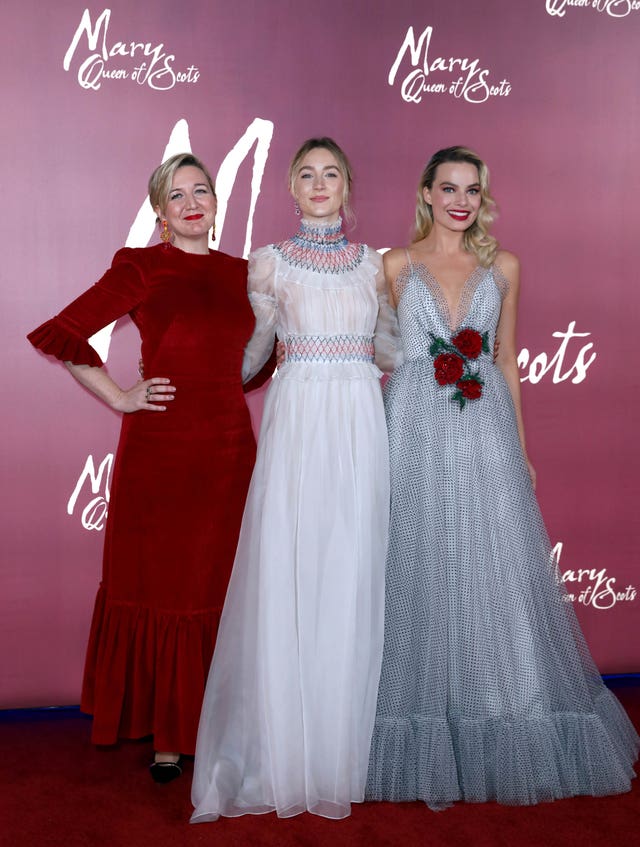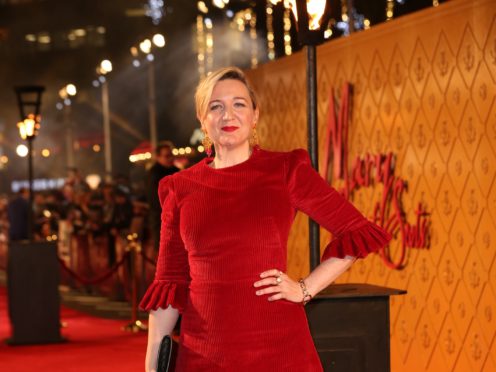Director Josie Rourke has spoken about her decision to include a shot of menstrual blood in her new film about Mary Queen Of Scots.
The outgoing artistic director of the Donmar Warehouse has made the leap to the big screen with the period drama about the Scottish queen’s rivalry with Elizabeth I, played by Saoirse Ronan and Margot Robbie respectively.
The film features a rare depiction of menstruation, in a scene showing Mary’s blood as she is washing, shortly after her marriage to Henry Darnley, and Rourke said she hopes the scene will start to normalise images of this kind.

She told the Press Association: “In America I was asked ‘how difficult was it to shoot that menstrual blood scene?’ But it was probably the most straightforward scene that we shot because there were six women there and we all know what happens and we all know what to do.
“I think that it’s probably one of the few contexts in which I can say normalisation is a good thing, we just need to see that, because it happens to pretty much half of us at some point in our lives and that we’ve not shown it before is probably just a bit disappointing more than anything else.
“I would say about that scene that that’s also about the intense focus of any renaissance court on what is going to happen with Mary’s body, whether or not she’s going to procreate, whether she’s going to have an heir, that is what Elizabeth is thinking about so it filters into the story, but let’s just show this stuff so we can start to not be shamed.”
A story of two powerful women that’s more relevant than ever. Don't miss #MaryQueenofScots in cinemas next Friday. pic.twitter.com/E4f053Ro00
— Universal PicturesUK (@universaluk) January 12, 2019
Rourke said the film shows that little has changed with regards to how women in power are treated, adding: “I think a lot of that, and this is a big part of the film, is to do with how much women’s bodies, even when they are crowned heads of Europe or perhaps especially, dominate the conversation.”
She added: “Do you remember when Andrea Leadsom (Leader of the House of Commons) came out and said that she was more qualified to lead because she had had a baby? It’s still very present, I think.”
Rourke added that her storytelling has been particularly informed by the fact she is still greatly outnumbered by her male counterparts.
She said: “Because I am a woman and I am a woman who had tried to follow paths, even as a theatre director – which you would think was a very inclusive and liberal place, that haven’t really been trodden by a lot of women before, you don’t have a lot of other women’s live to navigate by.
“I think that when that happens to you, naturally some of that flows into your work so I’m almost trying to tell stories that reflect both my experience and my observation of what it’s like to be a woman in a male-dominated setting or an unusual setting, what that feels like.
“And it’s just not in a ‘strong women are great’ way, this movie is about telling the whole range what that thing is, how difficult, how embarrassing, how hard, how confusing, how vulnerable that can make you, as well as the strength that is shown.
“A lot of people have said this feels like a very Me Too movie, now we made it largely before that sprung up through the US and I think actually what is happening is that we are just starting to look at stuff that has already existed, we are giving that bit more exposure, we have moved the camera and gone ‘Shall we look over here?’
“It’s not a sudden outbreak of sexual misconduct, is it? It’s been happening for a while, it’s just we’ve chosen to look at it.”
Mary Queen Of Scots is released in UK cinemas on January 18.
